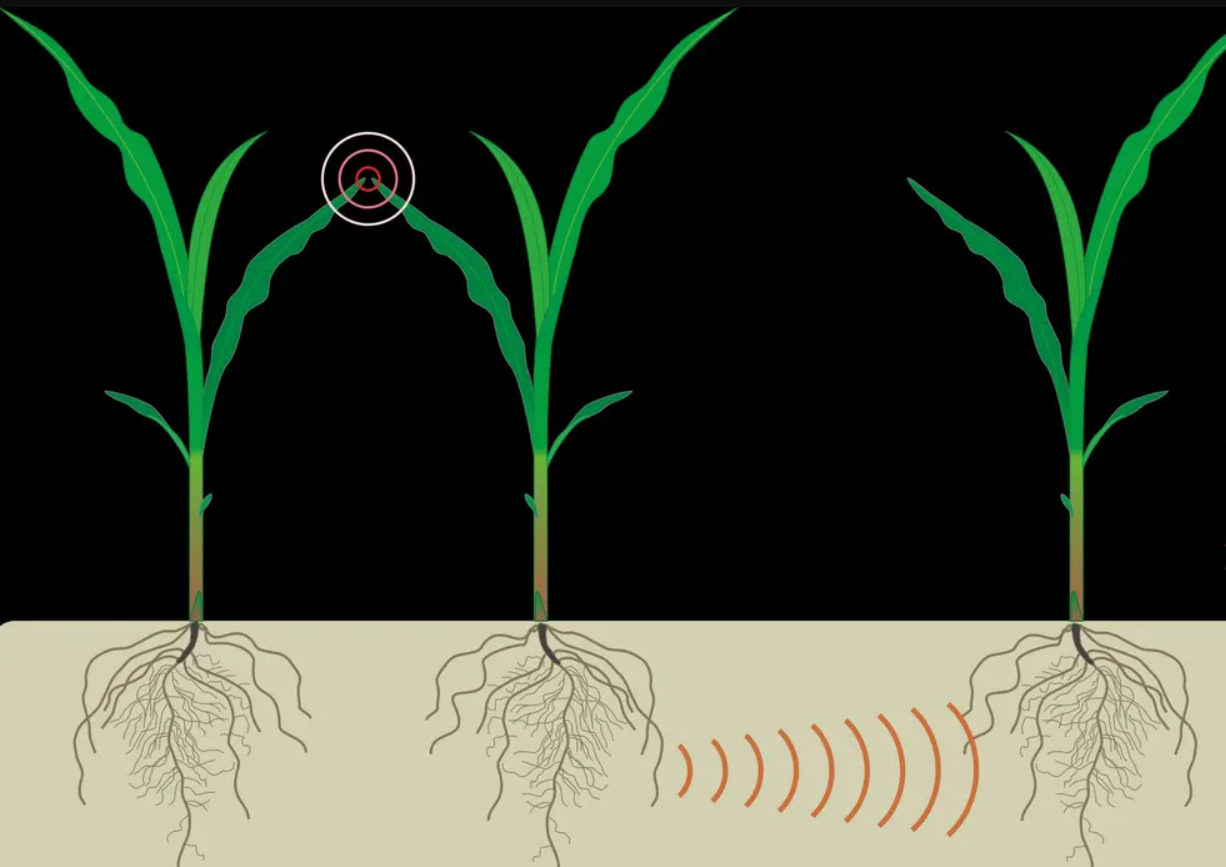
Animals frequently use highly specific signals to warn their herds of approaching predators. Surprisingly, similar behaviours have been observed in plants. Tokyo University of Science researchers have discovered one such mechanism, which sheds more light on this phenomenon.
Using Arabidopsis thaliana as a model system, the researchers discovered that herbivore-damaged plants emit volatile chemical "scents" that cause epigenetic changes in neighbouring plants' defence genes. These genes then activate anti-herbivore defence systems.
Many species of animals in the wild, particularly those with known predators, use a variety of techniques to warn each other of impending dangers, ranging from scent to sound. We now have reason to believe that plants, too, can sound an alarm in the event of an attack, thanks to numerous studies on the subject.
Previous research has shown that when grown near mint plants, soybean and field mustard (Brassica rapa) plants exhibit enhanced herbivore pest defence by activating defence genes in their leaves as a result of "eavesdropping" on mint volatiles.
Simply put, if mint leaves are damaged as a result of a herbivore attack, the plants nearby respond by activating their anti-herbivore defence systems in response to the chemical signals released by the damaged mint plant. A team of researchers from multiple Japanese research institutes, including Tokyo University of Science, studied these responses in Arabidopsis thaliana, a model plant widely used in biological studies, to better understand this mechanism.
"Surrounding undamaged plants exposed to odours emitted by pest-eating plants can develop resistance to the pests. Although induction of defence gene expression in odour-responsive plants is critical to this resistance, the precise molecular mechanisms for turning the induced state on or off are unknown."
"We hypothesised in this study that histone acetylation, or so-called epigenetic regulation, is involved in the phenomenon of resistance development," says Dr. Gen-ichiro Arimura, Professor at Tokyo University of Science and one of the study's authors. Their research was recently published in the journal Plant Physiology.
First, the plants were exposed to ocimene, a volatile organic compound commonly released by plants in response to herbivore attacks such as Spodoptera litura. The researchers then attempted to pinpoint the precise mechanism of action of volatile-chemical-activated plant defence.
The findings were intriguing: defence traits were induced in Arabidopsis leaves, most likely via "epigenetic" mechanisms, which refer to gene regulation caused by external environmental influences.
In this case, the volatile chemicals released by the damaged plants increased histone acetylation and the expression of defence gene regulators like "ERF8" and "ERF104." A specific set of histone acetyltransferase enzymes (HAC1, HAC5, and HAM1) were discovered to be responsible for the induction and maintenance of anti-herbivore properties.
The researchers are ecstatic about their discovery of the role of epigenetics in plant defence. They believe that plant communication via volatile compounds (also known as the "talking plants" phenomenon) has the potential to be applied to organic cultivation systems. This may increase plant pest resistance and, as a result, reduce our reliance on pesticides.
"The effective use of plants' natural survival strategies in production systems will bring us closer to realizing a sustainable society that solves environmental and food problems at the same time," Dr. Arimura concludes.
(Source: Tokyo University of Science)









